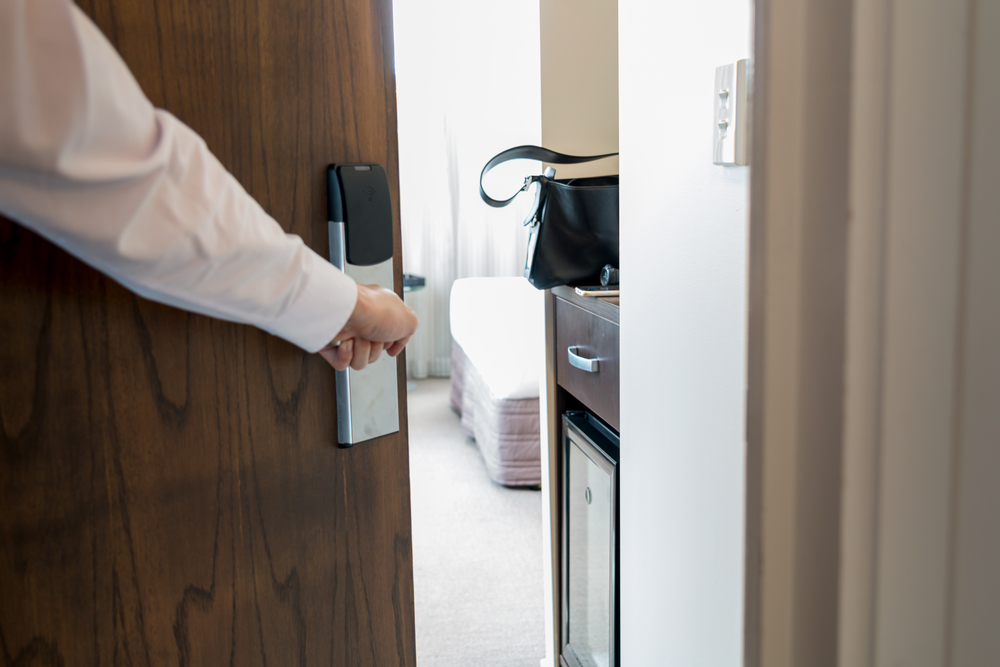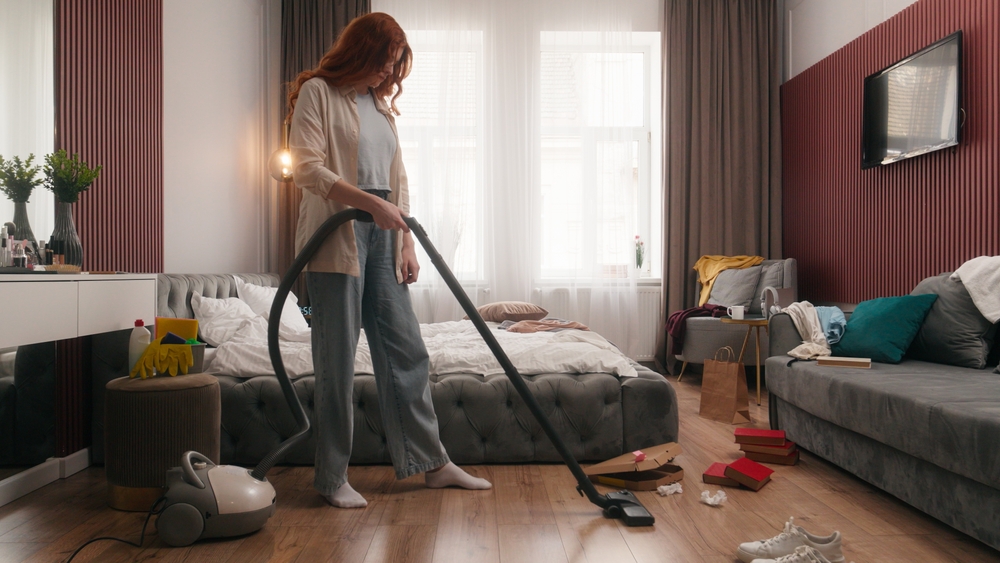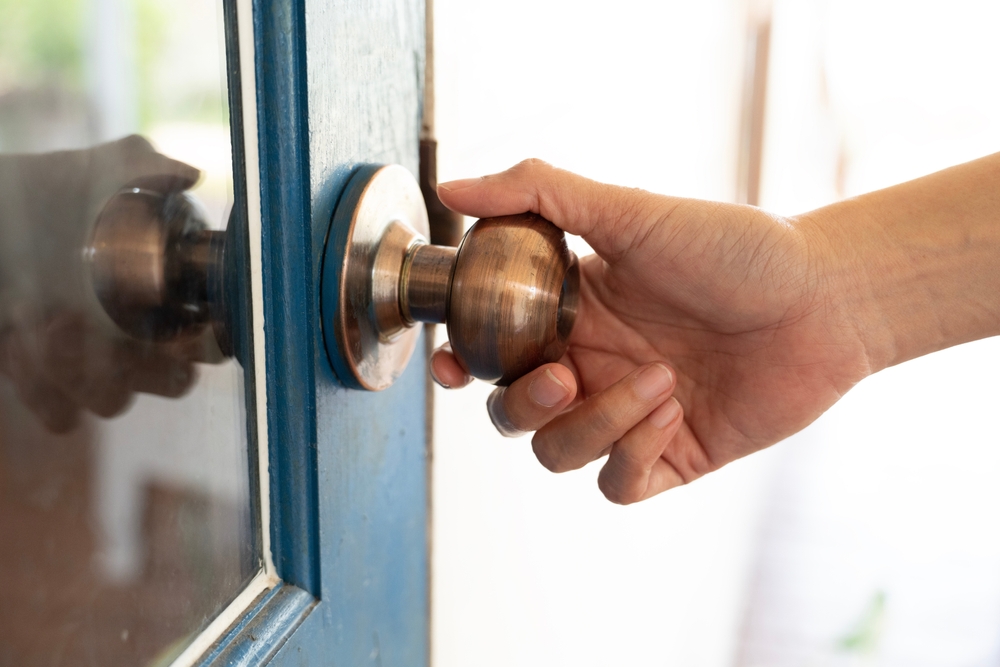Etiquette is more than a formal set of rules. It is about respecting others, creating smoother interactions, and making people feel comfortable. Practicing small etiquette habits each day helps build better relationships, whether in public, at home, or online. These 50 little etiquette tips and rules may seem minor, but they have a lasting impact on how others perceive and respond to you.
Say “Please” and “Thank You” Without Exception

Using polite language shows basic respect for others. Saying “please” when asking for something and “thank you” after receiving it builds a tone of kindness and gratitude. These words are simple, but they create a ripple effect of positivity. Whether speaking to a family member, cashier, or co-worker, consistently using these terms sets a respectful tone in all your interactions. These expressions make people more willing to help and create a better social environment. Even in digital messages, adding a quick “thank you” helps you appear more approachable and courteous.
Wait Your Turn to Speak

Interrupting others may signal that you are not listening or that your thoughts matter more. It can come across as impatient or dismissive. Practicing active listening by waiting for someone to finish speaking builds trust and respect in conversations. It also ensures that communication is clear and uninterrupted. Waiting your turn demonstrates emotional maturity and self-control. It allows ideas to be expressed fully and prevents misunderstandings that often result from cutting someone off mid-sentence.
Hold the Door for the Next Person

Holding the door is one of the easiest ways to show consideration. It signals that you are aware of others around you and are willing to make a small effort for their comfort. It is not about gender roles or formal behavior. It is about shared human courtesy. Holding the door also creates moments of goodwill with strangers. This small gesture can shift someone’s mood and foster a sense of community, especially in public spaces like offices, shops, or restaurants.
Respect Personal Space

Everyone has a physical comfort zone, and invading it can make people feel uneasy. Maintaining an appropriate distance shows that you recognize boundaries and understand the importance of non-verbal communication. In crowded spaces, standing too close may come off as aggressive. In professional settings, it can appear intrusive. Respecting personal space also includes avoiding unnecessary touching, such as placing a hand on someone’s shoulder without consent. By being mindful of space, you help people feel safe and respected.
Use Your Phone Responsibly in Social Settings

Using a phone at the wrong time can signal disinterest in the people around you. Scrolling while someone is talking or texting during a meal suggests that the present company is not important. Practicing phone etiquette means putting the device away during conversations, meals, or meetings. It shows that you are mentally present and care about the people with you. If a call or message is urgent, step away politely before checking your screen. This small habit shows self-awareness and respect for shared time.
Clean Up After Yourself

Leaving a mess for others to handle is inconsiderate and signals a lack of personal responsibility. Whether at home, in a shared workspace, or a public place, always tidy up after yourself. This includes throwing away trash, wiping surfaces, and returning items to their place. It may not seem like etiquette at first glance, but it reflects your values and how you treat communal environments. Cleaning up is a quiet form of respect that reduces tension and keeps spaces pleasant for everyone.
Give Genuine Compliments Without Overdoing It

A sincere compliment can brighten someone’s day. It shows that you are observant and willing to lift others up. When giving compliments, focus on something specific and authentic. Avoid flattery or exaggerated praise. Too many compliments can feel forced or uncomfortable. Instead, aim for natural appreciation. Mention someone’s effort, choice, or improvement. Giving thoughtful compliments helps build rapport and encourages kindness in return. It also shifts your attention toward the positive aspects of others.
Don’t Speak With Food in Your Mouth

Chewing and talking at the same time is unpleasant to watch and difficult to understand. It can lead to bits of food spraying or falling from your mouth, which makes others uncomfortable. Waiting until you finish chewing before speaking shows maturity and self-control. It also allows you to articulate your words clearly. In group settings like meals with friends or colleagues, this small rule reflects respect for the people sharing your space. It is a basic courtesy that keeps conversation more enjoyable for everyone at the table.
Knock Before Entering Any Room

Even if the door is slightly open, knocking before entering is a sign of respect for someone’s privacy. It gives them a moment to prepare or respond. This applies to bedrooms, offices, bathrooms, or any space where someone may want personal time. Walking in without warning can feel intrusive or rude. Knocking shows that you understand boundaries and value consent in everyday interactions. It helps prevent awkward moments and keeps shared environments more comfortable for everyone.
Do Not Comment on Other People’s Food Choices

Making remarks about what someone eats, how much they eat, or how they eat can be intrusive or judgmental. Everyone has personal preferences, dietary needs, or cultural habits that may differ from your own. Saying things like “You’re eating that?” or “That’s a lot of food” can make others uncomfortable. Practicing food etiquette means focusing on your own plate and respecting the privacy of others. This simple rule helps meals stay enjoyable and free of unnecessary tension.
Let Others Merge in Traffic Without Aggression

Driving etiquette plays a big role in public safety and daily stress levels. Letting other drivers merge into your lane, especially during rush hour or at construction zones, is a small act of cooperation. Blocking cars out of impatience creates tension and delays. A brief pause to let someone in can prevent accidents and make the road safer for everyone. Courteous drivers contribute to a more peaceful driving culture, even if the kindness goes unnoticed.
Avoid Gossip and Speaking for Others

Talking about people who are not present, especially in a negative way, is a breach of trust. It spreads misinformation, creates conflict, and reduces your credibility. Speaking for others without permission, such as explaining their behavior or beliefs, also crosses boundaries. Good etiquette means choosing honesty, protecting privacy, and avoiding drama. If a topic does not involve you directly, it is best to stay neutral or redirect the conversation. Respect for others begins when you choose not to speak on their behalf.
Do Not Overstay Your Welcome

Whether visiting someone’s home or attending an event, knowing when to leave is an important social skill. Lingering after the host begins to clean up or dropping by uninvited for long chats can feel intrusive. Practicing this rule means being aware of time, energy levels, and social cues. When a gathering winds down or your visit feels prolonged, politely thank the host and leave on a positive note. It shows you are considerate of others’ personal time and space.
Keep Criticism Private and Praise Public

Offering constructive feedback in private prevents embarrassment and encourages open communication. Praising someone in public, whether for work well done or kind behavior, boosts confidence and builds trust. Switching these around can create discomfort or conflict. When practicing etiquette, choose the right time and place for your words. Encouragement should uplift, not shame. Keeping criticism respectful and behind closed doors shows maturity and protects relationships.
Read More: 30 Things Americans Do Differently From the Rest of the World
Don’t Use Headphones During Conversations

Wearing headphones while someone is talking to you signals disinterest or distraction. Even if the volume is low, it gives the impression that you are not fully present. Taking off your headphones during a conversation, even a brief one, shows attentiveness and respect. This rule applies to checkout lines, casual chats, and workplace interactions. Practicing this habit helps people feel heard and valued in everyday exchanges.
Ask Before Bringing a Plus-One

Assuming you can bring an extra guest to someone’s event can create stress for the host. Whether it is a dinner, party, or outing, always ask first. Space, food, and social dynamics may already be planned, and unexpected guests can disrupt that balance. Being mindful of invitations and respecting limits shows that you understand boundaries and value the effort someone puts into organizing an event. This rule applies even in casual settings.
Take the Last Piece Only After Asking

When sharing food at a table or in a group setting, it is polite to ask before taking the final portion. Grabbing the last piece without checking can come across as greedy or dismissive. A simple “Would anyone like the last one?” gives others a chance to speak up and shows generosity. This practice avoids silent competition and promotes fairness. It is a small way to demonstrate unselfish behavior in shared spaces.
Respect the Silence of Shared Spaces

Libraries, waiting rooms, meditation classes, or even some office areas are meant to be quiet. Talking, playing videos out loud, or making unnecessary noise disrupts the peace others came for. Practicing silence etiquette means observing your surroundings and adjusting your behavior. Keep voices low, silence your phone, and avoid loud tapping or rustling. Respecting quiet zones is about preserving comfort for everyone present, not just yourself.
Do Not Assume Familiarity With Strangers

Using nicknames, making personal jokes, or touching someone you just met can feel invasive. While being friendly is encouraged, assuming closeness before it is earned may lead to discomfort. Let the other person set the tone. Being polite means reading cues, asking permission, and keeping interactions respectful. Taking a slower approach allows trust to build naturally and avoids overstepping boundaries. True etiquette respects emotional space just as much as physical space.
Keep Your Voice Down in Public

Speaking loudly in restaurants, stores, or public transportation can disturb others nearby. Not everyone wants to hear your phone conversation or debate over dinner. Being mindful of your volume shows that you are aware of your surroundings. It also reflects emotional control and social awareness. Keeping your voice at a moderate level helps maintain a peaceful atmosphere and allows others to enjoy their own space without unwanted noise.
Let Others Off the Elevator Before You Enter

This rule applies to elevators, trains, buses, and similar spaces. Trying to squeeze in before others exit creates unnecessary congestion and stress. Letting people off first makes movement smoother and faster for everyone. It also demonstrates patience and awareness. Waiting a few seconds before stepping in may not seem like much, but it shows you are not just thinking of your own destination. It is a subtle but powerful way to promote respect in shared environments.
Use Utensils Properly at the Table

Table manners reflect your understanding of social norms and respect for shared meals. Using utensils correctly means not licking them, not waving them around while talking, and placing them on your plate when not in use. Keep your elbows off the table when eating, and avoid reaching across others. These habits create a more pleasant dining experience and help you appear more polished and considerate. Even in casual settings, proper utensil use shows attention to detail and respect for those around you.
Offer a Seat to Those in Need

On public transportation or in crowded rooms, offering your seat to someone who needs it more is a thoughtful gesture. Pregnant people, elderly individuals, or those with visible challenges may benefit from the extra space. Even if no one asks, offering your seat can make a significant difference in someone’s day. It signals empathy and a willingness to put others’ comfort ahead of your own. This small act of kindness builds goodwill and shows strong character.
Avoid Using Speakerphone in Public

Using speakerphone in public forces others to hear a conversation they never agreed to be part of. It invades shared space with unnecessary noise. If you need to take a call, use headphones or step away to a more private area. This habit respects the boundaries of those around you. It also keeps your conversation more discreet and prevents unwanted attention. Practicing this rule shows that you understand modern courtesy and are mindful of how your actions affect others.
Always RSVP Promptly

If someone invites you to an event, responding in a timely manner shows that you respect their planning. Whether it is a dinner party, wedding, or small gathering, hosts need to know who is coming. Ignoring an invitation or delaying your response makes it harder for others to prepare. Prompt RSVPs signal that you value others’ time and effort. Even if you cannot attend, a quick message lets the host know where things stand. It is a simple step that helps everyone feel respected and included.
Leave Shared Spaces Better Than You Found Them

Whether using a public restroom, shared kitchen, or office meeting room, leave it in good condition for the next person. This includes wiping down counters, throwing away trash, and organizing any moved items. This rule goes beyond basic cleaning. It is about being responsible and thoughtful. When you leave a space tidy, it shows you care about how your actions affect others. It also sets a good example for shared responsibility and community upkeep.
Do Not Use Someone Else’s Belongings Without Asking

Using someone’s pen, charger, chair, or food without permission may seem minor, but it crosses a boundary. It assumes access without consent, which can cause discomfort or frustration. Even among close friends or family, asking first shows basic respect. This rule reinforces personal responsibility and acknowledges that everyone has a right to their own space and items. It prevents misunderstandings and shows that you value others’ possessions as much as your own.
Avoid Humble-Bragging in Conversations

Bragging while pretending to be modest is still bragging. Saying things like “I’m so tired from all my accomplishments” can come off as insincere or attention-seeking. This behavior makes others feel lesser or ignored. True etiquette means being confident without needing constant validation. If you want to share a win, do it honestly and briefly, without disguising it as self-pity. It builds authenticity and keeps conversations balanced and respectful.
Give People a Chance to Decline Help

Offering help is kind, but forcing assistance can feel controlling. Some people prefer to handle tasks independently, even if they struggle. Jumping in without asking takes away their agency. Practicing etiquette means asking, “Would you like help?” before acting. This question respects their autonomy and allows them to choose. It also avoids turning a good intention into an unwanted disruption. Etiquette is not just about action. It is about timing and permission.
Read More: 11 Clear Signs a Child Wasn’t Raised Right, According to Teachers
Avoid Oversharing in Early Conversations

Revealing too much personal information too soon can overwhelm others and create awkwardness. While openness is important, strong relationships are built gradually. In early conversations, stick to balanced topics and allow space for the other person to speak. Oversharing can shift the mood, especially in professional or casual settings. Good etiquette means understanding what is appropriate for the moment. Respecting emotional boundaries builds trust and leaves a positive impression.
Never Leave a Group Without Saying Goodbye

Quietly slipping out of a social setting can make others feel confused or dismissed. Saying a simple goodbye before leaving shows appreciation for the time shared and helps bring closure to your presence. It does not need to be dramatic. A short “Thanks, I have to head out now” is enough. This habit respects others’ awareness and keeps group dynamics smooth. It signals that you value the connection and are not disappearing without regard.
Do Not Fish for Compliments

Making self-deprecating remarks to get praise may seem harmless, but it puts pressure on others. Saying things like “I look terrible today, right?” often forces people to respond with compliments they may not have intended to give. This creates imbalance in conversation. Practicing this etiquette rule means accepting praise gracefully when offered, and not seeking approval through guilt or manipulation. It encourages sincerity and confidence without placing others in uncomfortable roles.
Avoid Typing in All Caps When Messaging

Typing in all capital letters gives the impression of shouting. It can come off as aggressive, urgent, or impatient, even if that is not your intent. In texts, emails, or comments, use proper capitalization to maintain a neutral and respectful tone. Practicing digital etiquette means understanding how your words may be received. Keeping your messages calm and clear avoids misunderstandings and keeps communication civil. Good manners apply online as much as they do in person.
Do Not Assume Everyone Drinks Alcohol

Offering someone a drink at a gathering is a friendly gesture, but assuming they drink alcohol can be uncomfortable. Some people avoid alcohol for health, religious, or personal reasons. Pressuring others to drink or questioning their choice creates social tension. Practicing this rule means offering options without assumptions. Say things like “Would you like a drink?” instead of “What are you drinking?” This respectful approach creates inclusive environments where everyone feels welcome.
Be Ready to Step Aside in Narrow Spaces

Hallways, sidewalks, or store aisles often become tight spots where people must share space. Holding your position or walking down the middle forces others to adjust around you. Practicing etiquette in these moments means stepping aside when needed, making room for strollers, carts, or people with mobility needs. This small action shows spatial awareness and reduces stress in public areas. It prevents unnecessary contact and keeps movement flowing comfortably for everyone.
Keep Group Chats Relevant and Concise

Group chats help coordinate plans and share information, but flooding them with off-topic jokes or unnecessary updates can frustrate others. People may miss important messages or feel overwhelmed. Practicing etiquette in digital groups means being brief, staying on topic, and avoiding spamming. If something is meant for one person, send it privately. This habit respects everyone’s time and attention, especially in busy or professional settings.
Ask Before Playing Audio Out Loud

Playing music, videos, or voice messages out loud in public or shared spaces often disturbs others. Not everyone wants to hear your playlist or notifications. Practicing this rule means using headphones in cafés, offices, or transit. If you need someone to hear a message or sound, ask first before turning up the volume. This level of awareness keeps environments peaceful and shows that you consider how your behavior affects others around you.
Be Patient With Customer Service Workers

Losing your temper with cashiers, waiters, or help desk staff never improves the outcome. Many service workers have limited control over systems or delays. Practicing etiquette in these situations means staying calm, using kind words, and showing appreciation for their efforts. This respectful behavior supports a more positive interaction for both parties. It also sets an example for others nearby. Treating people with patience is a reflection of your own character, not just a reaction to service quality.
Do Not Take Calls on Speaker in Quiet Places

Using speakerphone in libraries, waiting rooms, or cafés disturbs the environment and invades others’ space. It also exposes the person on the other end of the call to unwanted listeners. Practicing phone etiquette means taking calls privately, using earbuds, or stepping outside. Respecting quiet places keeps them functional and comfortable for everyone. This rule helps reduce noise pollution and supports basic shared courtesy.
Return Borrowed Items in Original Condition

When someone lends you something, whether it is a book, tool, or article of clothing, returning it clean and undamaged is essential. Returning it late, broken, or changed in any way shows carelessness. Etiquette means treating borrowed items with as much care as your own. If damage happens, be honest and offer to replace or repair it. This builds trust and shows you take responsibility for what is not yours.
Avoid Hovering Over People While They Work

Standing behind someone as they type, write, or focus on a task can be distracting and make them feel pressured. Hovering suggests impatience or lack of boundaries. Practicing this rule means keeping a respectful distance and waiting until they finish before asking questions. It allows the other person to focus and shows that you value their time and space. This habit improves communication and reduces stress in work environments.
Leave Public Restrooms Clean for the Next Person

What you do in a public restroom affects the comfort of the next person. Leaving behind paper towels on the counter, an unflushed toilet, or a dripping sink creates unnecessary mess. Practicing restroom etiquette means cleaning up after yourself, reporting problems, and being quick if others are waiting. This small act of care improves the experience for everyone and reflects respect for shared spaces. Clean habits in private reflect integrity in public.
Close Things Quietly in Shared Spaces

Slamming doors, banging drawers, or clattering dishes creates stress in shared environments. Practicing etiquette means being aware of sound and moving gently. Close doors with care, place items down softly, and avoid noisy movements when others are nearby. This small habit shows that you are tuned into the space and want to keep it comfortable. Quiet behavior is often invisible when done well, but it contributes to a more peaceful atmosphere for everyone.
Let Others Choose Their Seats First

In group settings like meetings, meals, or events, letting others pick their seat first is a small gesture of courtesy. It gives priority to comfort, accessibility, and personal preference. Jumping to the best seat or rearranging others to suit your needs can seem inconsiderate. Waiting a few seconds before sitting shows patience and respect. It also prevents potential conflict over placement. This etiquette rule is about putting group comfort ahead of personal convenience.
Do Not One-Up Someone’s Story

When someone shares a story or achievement, responding with a bigger or better version of your own can feel dismissive. It shifts the spotlight away and downplays their experience. Instead of competing, show interest and ask follow-up questions. Practicing etiquette in conversations means staying present, not turning every moment into a comparison. It allows others to feel heard and valued without pressure to impress or defend themselves.
Be Mindful of Strong Scents in Public

Wearing heavy perfume or cologne in shared spaces can overwhelm others, especially those with allergies or sensitivities. Scent is personal, but in public it becomes part of the environment. Practicing etiquette means keeping fragrance light and appropriate for the setting. It also includes avoiding strong-smelling foods or products in tight spaces. Respecting scent etiquette creates a more pleasant and accessible environment for everyone, not just those with similar preferences.
Respect the Time of Others

Being punctual shows that you value other people’s schedules. Whether for a casual meetup or a work meeting, arriving on time signals reliability and respect. If you are going to be late, let the other person know as soon as possible. Time is a limited resource, and wasting it through poor planning or delays can damage trust. Respecting time is one of the most powerful ways to build strong relationships and keep communication smooth. This rule applies across social and professional settings.
Use Names When You Speak to People

Addressing someone by their name shows that you recognize them as an individual. It adds warmth and connection to any conversation. Whether it is a friend, colleague, or service worker, remembering and using a person’s name makes them feel valued. It also helps create a more personal interaction and improves communication. When you use names respectfully, it shows that you are attentive and thoughtful. This habit, though simple, builds better relationships and fosters mutual respect.
Let People Exit Before Entering

Whether stepping onto a bus, elevator, or through a door, letting people exit before entering is a practical and polite rule. It avoids crowding and allows for a smoother flow of movement. Forcing your way through while others are trying to leave shows impatience and a lack of situational awareness. This etiquette habit is rooted in basic logic and empathy. Giving others the space to exit first shows that you are not just thinking of yourself. It also prevents accidents or awkward shuffling in tight spaces.
Say “Excuse Me” and “I’m Sorry” When Needed

These two phrases are essential to maintaining harmony in daily interactions. Saying “excuse me” when moving past someone, sneezing, or accidentally interrupting shows that you recognize the impact of your actions. Saying “I’m sorry” when you make a mistake is just as important. It helps repair minor conflicts before they escalate. These phrases signal accountability and consideration for others. Using them regularly helps create a culture of kindness and mutual respect in both personal and public spaces.
Read More: 14 People Consider These Things Signs of Bad Manners
Disclaimer: This article was created with AI assistance and edited by a human for accuracy and clarity.
